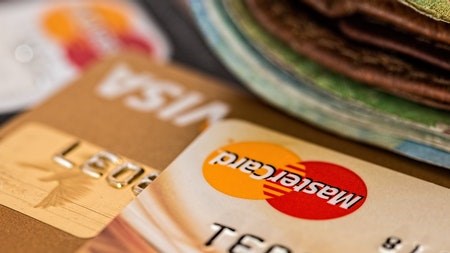It’s been just over a year since South Africa became the first country in the world to institute a debit order system that provides for the electronic approval by a bank account holder, for debit orders. Called DebiCheck, it was brought about by the South African Reserve Bank in an effort to control increases in debit order fraud, and the allied risks of debit order transactions.
It replaces the existing Early Debit Order system from 01 May 2021, and although not compulsory it will promoted as the preferred method for debit orders. Reports vary but it is estimated that South Africa has around R1.8-trillion of consumer credit extension, with some nine percent of that in arrears for at least three months. Stats from TransUnion also indicate that of the 22.5-million active credit consumers in the country, 45 percent have impaired credit records.
These figures give us some idea of just how difficult it is for credit loan providers to collect payments, and more so as debt is heightened post Covid-19 lockdowns, where many people depended on credit to see them through a difficult financial period. This is a bigger problem because of the number of unauthorised debit orders that are processed on consumer’s accounts, brought about by companies that act in bad faith in processing invalid debit orders, and then further exacerbated by clients not checking their accounts for such transactions.
Milan Ganda, Payments at Absa Home Loans, explains in more detail, why DebiCheck is welcomed. “Having a DebiCheck mandate in place, will assist in preventing fraudulent debit orders from being processed, giving the customer more control over their finances. It will be up to the consumer to authenticate and approve any debit order transactions through an electronic system, whereby they agree to the terms of payment.”
Essentially the system is simple. “Customers need to ensure that their contact details are always up to date with their bank, regardless of whether this relates to a home loan or a transactional account” says Ganda. “This includes your mobile/cell phone number, home and work contact numbers and email address.”
When a debit order is produced, the bank will contact the account holder and ask them to authenticate and approve the transaction and payment details immediately. Without this authorisation the debit order will not be processed. It’s safer than any existing system because both the credit provider (bank) and the account holder have agreed up front to the debit order transaction.
All debit orders must therefore have a mandate: a mandate being the agreement as to who can access an account holder’s bank account, which includes private parties such as those processing debit orders. If anything goes wrong, the mandate can be suspended under certain conditions, but not reversed if the transaction has been processed according to the terms of the mandate.
“DebiCheck mandates provide limited disputability for a customer on the basis that the mandate has been electronically approved by the account holder,” explains Ganda. “However should the customer wish to suspend the DebiCheck mandate, this can also be done electronically on the channel of their choice – be that online or via their mobile for example.
“The mandate can be loaded on any agreed amount up to a maximum of R1-million. From an Absa home loan perspective, every debit order will already have a valid mandate in place, having taken this up during the home loan journey. Any change to that mandate will need to be verified and confirmed before taking effect,” says Ganda.
It is vitally important that clients check their bank statements regularly to ensure they are aware of all debit orders being processed on their accounts, and that each of those have a mandate. Without a valid and authorised mandate, the bank will be unable to process any debit order.
Convenience is provided by Absa in this process. You will have the option to use DebiCheck through Absa’s Banking App, an ATM, online, Point of Sale, or USSD Push or USSD Pull. USSD stands for Unstructured Supplementary Service Data, sometimes referred to as ‘quick codes’, and is a communications protocol used by cellular phones to communicate with mobile networks. A USSD Push message is ‘pushed’ onto an account holders mobile by the sender, and a USSD Pull gives the customer the ability to purchase or enquire about a service.
This is how you can authorise Absa’s various DebiCheck mandates:
Absa App
- An SMS alert will be sent to your registered phone, requesting you to action a pending mandate.
- Logon to the Absa Banking App.
- A ‘Manage DebiCheck Debit Order’ message will be displayed. If you have a mandate to action select ‘Okay I got it’ to proceed.
- Select Debit Orders or select Menu, and click on Debit Order option displayed.
- A DebiCheck message is displayed. Select Continue.
- A list of your pending mandates will be displayed. Select the one you wish to action.
- Confirm the details are correct, and Approve or Reject.
- Continue to verify your transaction via Surecheck.
- The Debit Order Accepted or Rejected message will display.
ATM
- An SMS alert will be sent to your registered phone, requesting you to action a pending mandate.
- Insert your Bank Card, select your preferred language and enter your secure pin.
- Select Other Transactions until you see the DebiCheck Debit Order option.
- Select DebiCheck Debit Orders
- A list of your pending DebiCheck mandates will be displayed. Select the option you wish to action.
- Use Next and Back options to view the details of the Debit Order mandate.
- The DebiCheck Disclaimer will be displayed, then Approve or Reject.
- A receipt will be printed and a Transaction Completed will display to confirm your transaction.
- Select the Finish option to end the transaction.
Online Banking
- An SMS alert will be sent to your registered phone, requesting you to action a pending mandate.
- Log-on to your Absa Online Banking with your secure login details.
- Select the Payments option and click on Authorisations.
- A list of pending DebiCheck mandates will be displayed. Select the one you wish to action, and click on next.
- View the details to confirm their accuracy.
- On the dropdown menu next to Approve/Reject, select Approve or Reject and confirm.
- Continue to verify your transaction via Surecheck.
- DebiCheck Approval will display at the bottom of the screen, select Done to end the transaction. Similarly if you select Reject, a Debit Order Rejected message will appear.
POS
- An SMS alert is sent to your registered device requesting you to action a pending mandate.
- At the merchant you may be requested to review the mandate information either through the merchant’s sales portal or on the Bank’s Point of Sale device.
- If the details have been confirmed, insert your card in the POS device and enter your pin when prompted.
- The POS will confirm your pin.
- If any details of the mandate do not match the DebiCheck requirements, an error message will be presented to the POS. This will have to be fixed and re-tried.
- If all the details of the mandate match DebiCheck requirements the merchant will submit the confirmation code with the mandate information to the bank for processing.
- Absa will send a confirmation SMS with the mandate registration number.
USSD Pull method
- An SMS alert will be sent to your registered phone requesting you to action a pending mandate.
- Dial •120*2272# from your cellphone.
- Select Option 9 for DebiCheck Debit Orders, and reply.
- A list of pending mandates will display. Select the one you want to action and reply.
- View the details and confirm they are correct.
- Press 1 for next page and then press 2 to view the details of the mandate.
- Select 1 to approve the mandate, or 2 to reject.
- A DebiCheck Approval/Rejection Message will display. Return to the main menu to continue with your banking.
USSD Push method
- An SMS alert will be sent to your registered phone, requesting you to action a pending mandate.
- Selection Option 1 to accept, or Option 2 to reject the mandate.
- The Debit Order Accepted, or Debit Order Rejected message will appear.




